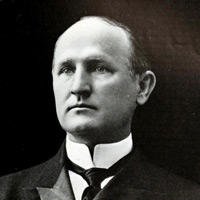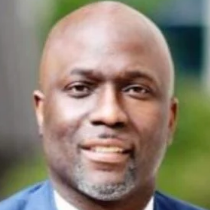 The board of trustees of East Carolina University in Greenville, North Carolina, has decided to remove the name of Charles B. Aycock from a residence hall on campus. The building, which opened in 1960, was named after Charles B. Aycock, a former governor of North Carolina, who was a strong supporter of White supremacy.
The board of trustees of East Carolina University in Greenville, North Carolina, has decided to remove the name of Charles B. Aycock from a residence hall on campus. The building, which opened in 1960, was named after Charles B. Aycock, a former governor of North Carolina, who was a strong supporter of White supremacy.
Aycock served as governor of North Carolina from 1901 to 1905. While Governor Aycock was a strong advocate for public education, he also was a staunch segregationist and led efforts to disenfranchise Black voters in the state.
The board decided to create a new space that will be called Heritage Hall where people of historic significance to the university will be honored in an “authentic and comprehensive context.” Board chair Robert Brinkley said that “we believe that Aycock’s legacy to education and his role in the history of ECU will be better recognized and understood in Heritage Hall.”
Tyler Morrison, the president of the Black Student Union at East Carolina University, said after the board vote that “there is a high sense of accomplishment. It affirms our faith in our university, that our student voice, opinion, and culture really matters to the trustees and administrators on campus.”
In June 2014, Duke University renamed a building on its campus that had honored Aycock.










For any higher education institution to participate in type of political correctness and complete sanitization of history is virtually anti-intellectual. In other words, one with a modicum of intelligence and humanity wouldn’t condone such behavior or the racist animist as exhibited by former N.C. governor Charles B. Aycock. From a purely historical and educational standpoint, when these types of structures, streets, scholarship are renamed or torn down, future generations of students will be totally ignorant of major historical figures in the state of North Carolina along with the Civil War historical figures.
Based upon their logic, the next course of action is to remove all structures, scholarships, or streets named after those affiliated with the Civil War and all of the former Confederate States. For example, I guess they should change the name of the former Grand Dragon of the Ku Klux Klan and former Brigadier General Edmund Winston Pettus (you know, bridge known for Bloody Sunday on March 7, 1965). Why not change the name of all the Presidential libraries based upon their racist domestic and foreign policies along with many being “African slaveholders” from Washington, Adams, Jefferson, Madison, Monroe, J.Q. Adams, and Jackson, etc.
In other words, the American people need veer away from the politically correct (PC) paradigm because it doesn’t solve problems and act as it didn’t exist.
Thanks for the analysis. If we remove the documentation of these individuals and their concepts and beliefs,then in 25 years we will not have have evidence of the activities that went on. That is tantamount to eradicating history. We must take the good , bad, and ugly.
Louise